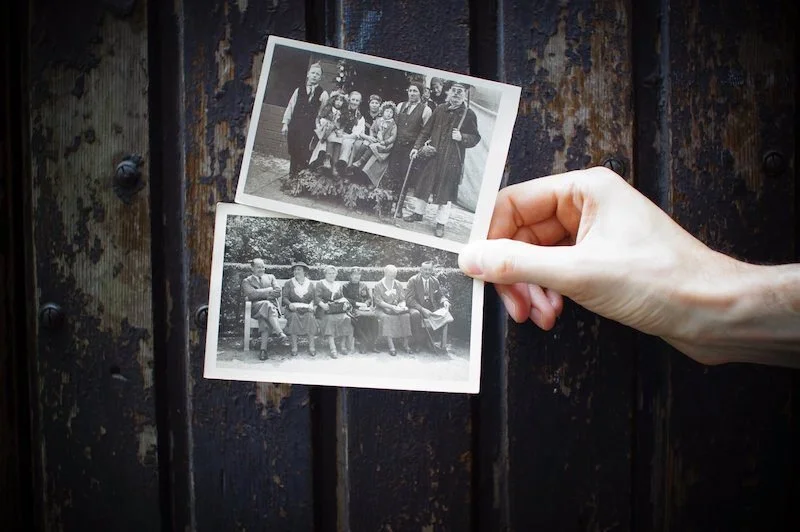No One is in Charge of Teaching Us About Postpartum
What is Postpartum?
For many women, postpartum isn’t thought until she’s in the depths of it- wondering what the hell she is doing wrong and why she feels so isolated. For many, postpartum is still an ambiguous term that may refer to the length of maternity leave or how long it takes the body to “bounce back.” In an age of independence and the loss of “village” living, women are missing the spaces to see pregnancy, birth, and postpartum in real life.
Providing free content is a priority at Postpartum Together. This page may contain affiliate links which means, at no additional cost to you, we may receive a commission for your purchase. Don’t worry, we only promote things we believe in because we love you!
POSTPARTUM IN THE PAST
Most of our grandmothers lived with or near other family members. They were able to have a first-hand look at how their sisters or cousins experienced the seasons of pregnancy through postpartum.
They were able to hear the cries of newborn babies in the middle of the night.
Able to see the struggle of a new mom walking to the bathroom days after birth.
They were able to talk with a new mom about the roller coaster of emotions and transitions.
Women who could see the beautiful, but there was also a first-hand look at the difficult.
In an age of independence and the loss of “village” living, women are missing the spaces to see pregnancy, birth, and postpartum in real life.
This gap has an effect on the whole family as men and women alike struggle to understand the complexity of this time. The lack of knowledge, understanding, and normalization overflows to our homes, workplaces, community settings, and screens.
IN THE FAMILY
Women who have younger siblings or even cousins may see the process of pregnancy, birth, and postpartum first hand. In most cases, this is still at a young age and the ability to see the big picture and emotionally process is lacking.
However, even if we aren’t seeing our own mothers, aunts, etc. in their postpartum, the foundation it provides for us takes root. We carry with us a perception of who we believe these women to be at this time. We may even create memories that aren’t actual experiences based on what our minds tell us about filling in the gap of information.
It is likely that, in not noticing the struggles of our own mothers and family members, we create a story that these women were without struggle or fault. We may create a model to which we compare our own experiences that are not based on a lived reality. We may be harder on ourselves in our own time of postpartum, assuming that the women in our families were “stronger” than us because we do not remember being a part of their dark moments.
IN SOCIAL CONSTRUCTS
Women may see postpartum throughout their lives within different social constructs- church, neighborhood families, school teachers, etc. However, in these constructs, the emphasis usually remains on the arrival and celebration of a new baby.
Does your teacher return from maternity leave? You automatically ask to see pictures of the baby.
Do neighbors welcome a new baby? The neighborhood might get excited to shower them with diapers or new onesies.
Has anyone been in a church service where the transition of a new mother was celebrated alongside the dedication or baptism of the baby? She too has experienced a rebirth, but it is so often overlooked.
A Mother Has Been Born Too
It’s hard to dig into the depths of a new mom’s experience, and not everyone should or deserves to be in that deep place with a woman, but the reinforcement of social structures looking right past the mom can have a compound effect on her mind and spirit. Remember- she was just a goddess with her pregnant belly and people were holding doors and giving her compliments in public. When that suddenly stops and has a drastic change, the new mom feels it and every woman takes in a bit of the seen and perceived public reaction.
POSTPARTUM IN WORKPLACES
Recently maternity leave and parental care in the workplace have received press and media coverage- some positive and some that would make a PR team cringe. The perception of postpartum in the workplace is often boiled down to how long you must have rights to maternity leave and how productive you can or cannot be upon returning with different needs and priorities. Approaches of our leaders and coworkers play a role in how we understand our own postpartum.
We analyze the experiences we see in our coworkers- how quickly they return to work, their productivity numbers upon return, their ability to balance different schedules, and the ongoing illusion of “work-life balance.” Women create an understanding of what they are “allowed” to experience in their postpartum journey based on messages passed from bosses, coworkers, and workplace policies.
How many PTO days do you have?How long does it really take to recover from childbirth? Is it truly necessary for you to pump at work- can’t you just wait and do that at home?
These comments, questions, and policies play into our foundation of how we understand our own postpartum and what we deem “acceptable” for ourselves.
Magazines and Social Media
When postpartum shows up in a magazine, it’s most likely covering how quickly a celebrity got “back into shape” or is highlighting a struggle with postpartum depression. The media tends to dramatize things, this is no surprise, but the messages that come through these images and words subliminally add to the foundational understanding we have about postpartum: Get thin fast and make sure you don’t get depressed.
Log on to social media and use any hashtag that includes the word “postpartum” and you’ll be bombarded with before and after pictures. You’ll probably even get some DMs from people who can show you how to “get your body back” after a baby. Whatever your views of postpartum bodies, fitness, etc., the emphasis is damaging when we consider how many transformations happen in postpartum, and yet images often boil it down to one factor. Even before we are in our own postpartum, these continual messages build a loud message in our minds.
TV Shows and Movies
TV shows and movies rarely show postpartum, but when they do we see a play on how dramatic women are. We might see a woman who can’t stop crying so her husband and family get frustrated. We may see depression or anxiety, but often we see life returning to “normal” when the family gets home from the hospital. It is few and far between that we see and hear the conversations of new moms figuring out this new life and how it ripples into the whole family. Two shows are currently nailing it, both made outside of the United States (can’t say I’m surprised) Workin Moms and The Letdown. Media is everywhere, and the messages (or lack thereof) that we see about postpartum drive into us how we believe we should think, feel, look, and act.
RELATED: Postpartum Resources
BUILDING (AND REBUILDING) OUR FOUNDATIONS
Foundations matter. They are what we build on. Foundations keep us steady when things start to get rocky.
When it comes to postpartum, our foundation of understanding begins long before we even realize it. The story we create in our minds is formed by messages coming from many different directions. The ability to see or not see other women's experiences this time shapes the expectations we place on ourselves.We cannot go back in time and rewire the foundation we have created, but we can see it for what it is and patch up the missing pieces. It is in our power to go back and take out a piece of the foundation that may have been built on misinformation and replace it with a more informed and empowered view. We can seek out education, resources, and advocacy for our own experience- and that of women across the world.
Our postpartum foundation matters. Whether or not an understanding of postpartum came naturally to you in your life, you have the opportunity to build that foundation now.
Looking for support through your postpartum? Want to talk about topics like this one in a safe, guided space so that you can be empowered and supported? Learn more about coaching with me.
Preparing for a Better Postpartum Experience
Are you pregnant and wondering how to prepare yourself for postpartum? I made it easier for you. Check out the Postpartum Plan Checklistto make sure you have your bases covered!



